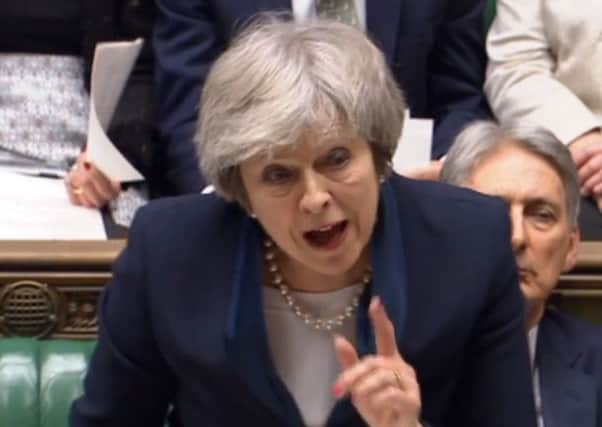Brexit is being driven by politics instead of economics


Otto von Bismark, a Prussian, was the first chancellor of what was then the German empire, ruling from 1870 to 1890. He said that politics is the ‘art of the possible, the attainable – and the art of the next best’. Theresa May must be doubting that politics is the art of either the possible or the attainable, but with days to produce a plan B for Brexit she is now under pressure to find that art of the next best.
She may find the events this week bring about a sense that there is a need for compromise, but she would be rash to bet on such an outcome.
Advertisement
Advertisement
The worry is that she still wants to stick to her red lines, including a commitment that the UK will leave the customs union. She may not want to rule that out, but she might find progress possible if she accepted the views of her Chancellor that leaving the EU in March with no deal would be an unacceptable economic gamble. It might come off, but with every sector of industry, agriculture, the Bank of England and most economists cautioning against it this would be akin to betting your house on an outsider in a race they are unlikely to win. As with everything the decision is a balance between risk and reward and as things stand that is too skewed to make this a sensible risk.
Even in Northern Ireland, where we are no strangers to blunt politics, most of us have never seen politics as red in tooth and claw as they were at Westminster this week. A key issue with Brexit is that it is
being driven by politics rather than economics. That never makes for good decisions. The UK joined the then EEC back in 1973 on the basis of economic arguments about it creating better opportunities for UK industry. By driving the creation of the single market the UK cemented that economic concept. That has since been blunted by the federalist agenda of some member states and commissioners. That is a case of politics over economics and it has not been good for the EU. Indeed that federalist thinking has been one of the issues driving Brexit. Now in the UK we are again in a situation where political heat is overruling cool economic heads, and that cannot make for good decision making.
As we sit now we have a range of options for Plan B. Vote again on the Withdrawal Bill, almost certainly with the same result; run down the clock to secure a hard no deal Brexit in March, which is unlikely to go through parliament; negotiate again with the EU, but Brussels will only change detail and not substance; kick for touch by delaying the leaving date, which now looks likely; end up with a Norway-style membership of the EU customs union, which also looks increasingly likely. None of these options are what either side wants, but that is where politics needs to be the art of the possible. Without compromise there will be no progress. Theresa May’s problem is that she is a remain supporter pursuing a leave agenda. Like all converts she has allowed that to influence her judgement. She has the zeal of the convert, but without the conviction to fully believe or the confidence to stand up to her hard line anti-Europeans. She has lost sight of the political reality that the referendum was meant to unite, not shatter the Conservative party – as happened in the 1870s over the Corn Laws, putting the party out of power for 30 years.
Advertisement
Advertisement
The bottom line remains that some sectors of agriculture could live with no deal, but for the vast majority of farmers this would be a bad outcome. Farmers need to pay heed to the farming lobby that represents
them and has their interests at heart.
Events this week have confirmed for many people what a self-serving group many politicians are, given that they are more interested in their own views than loyalty to their
party or indeed the best interests of the UK economy. From the outset of the drive to implement the EU referendum result political infighting has trumped economic logic. Until that changes we will continue drifting in uncharted waters.